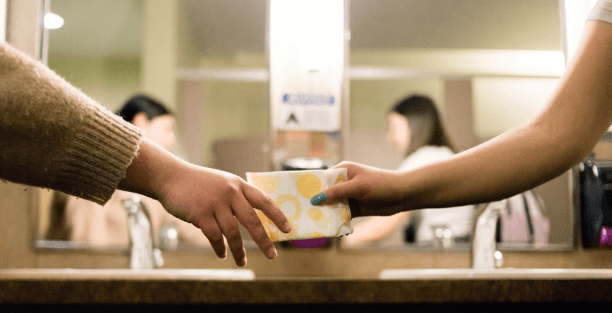Tackling Period Poverty: Challenges and Solutions in Toronto

Despite this difficulty, there is a rising energy to end the problem of Period Poverty in Toronto. Besides the fact that organizations, activists, and lawmakers are working persistently to introduce sustainable solutions and support people here, period poverty, which is the most prevalent issue in Toronto than people might imagine, is altering the world of Toronto. From financial constraints to stigmas associated with people who menstruate, several barriers inhibit accessing practically necessary menstrual products.
On the other hand, with every difficulty there is also an innovative solution and a host of meaningful initiatives all intended to provide the pressing solution to this. Let’s now unveil the challenges and brainstorm the solutions to go beyond and accomplish a more just and equal society.
The Financial Strain
A major barrier that most menstruators face is the menstrual products which are costly to purchase. In a high-cost city like Toronto, pads and tampons can become a luxury. This is difficult to imagine for those with limited funds. As an illustration, sacrificing paying bills for sanitary products might be a daily struggle for individuals who are already on the struggle to meet their day-to-day needs.
Limited Access and Stigma
In addition to poverty room, menstrual products are not available due to social stigma ways and insufficient dispensing. Many people are fearful or even nauseous to request clinics, which makes their problem even more complicated. Public spaces as well as facilities often are restricted in terms of menstrual hygiene so menstruators still don’t have this place to take care of their menstrual needs.
Two Major Impacts
The consequences of menstrual poverty are overall severe, and it is mainly devastating to areas such as education and employment. Women will be at higher risk of absenteeism and poor performance in school if they do not have access to protection products. Thus, they might culminate in poor socio-economic prospects in the future. Interviews at workplaces or during work situations can cause inconvenience. This contributes significantly to a cycle of poverty.
Subsidized Programs and Initiatives
One approach gaining traction is the implementation of subsidized programs that provide free or low-cost menstrual products to those in need. In Toronto, initiatives like the Period Promise Campaign by United Way Greater Toronto raise awareness. They aim to secure funding for distributing menstrual products to vulnerable populations. These programs not only alleviate financial burdens but also help destigmatize menstruation by promoting open dialogue and education.
Community Outreach and Education
Community outreach and education play a crucial role in combating period poverty. By providing accurate information about menstrual health and hygiene, organizations can empower individuals to make informed choices and break the silence surrounding menstruation. The workshops, seminars, and educational programs specifically designed for diverse communities will help dispel the myths and isolations and can promote inclusivity and equity.
Advocacy and Policy Reform
Young women will stand as a barrier against the systemic obstacles that put period poverty at the optimum. There have been specific developments, including urging local authorities and decision-making to adapt programs relating to menstrual hygiene into public health target plans and social assistance programs. Free sanitary pads must be made available in schools, shelters, and public places, and an all-inclusive menstrual leave policy should be implemented in offices also.
Innovative Solutions
Innovation and technology could turn out to be mouth-watering tools in solving period poverty in not only Toronto but also in other places. Among the range of technologies provided by menstrual product subscription services to period-tracking apps that enlighten and comfort period managers, the potential of opening a completely new world to how menstruators manage their periods has proved to be a stepping stone.
It is time for the current government to create a more fair society in the future.
Period poverty requires a multidimensional approach to address underlying causes and provide immediate solutions. Collaboration among government, non-government, private sectors, and the community is essential. Toronto will lead in eradicating all forms of period poverty through united efforts. This marks a new beginning toward a more equitable civilization. All menstruators deserve the privilege of managing their periods without barriers.
Conclusion
In Toronto, period poverty is a vastly complex matter entangled with poverty, stigma, and systemic extents. Nevertheless, the movement forward is being achieved through teamwork and ideas. Furthermore, collaborative efforts are breaking down common beliefs about hurdles to access menstrual items for all. Imagined solutions are being explored.




